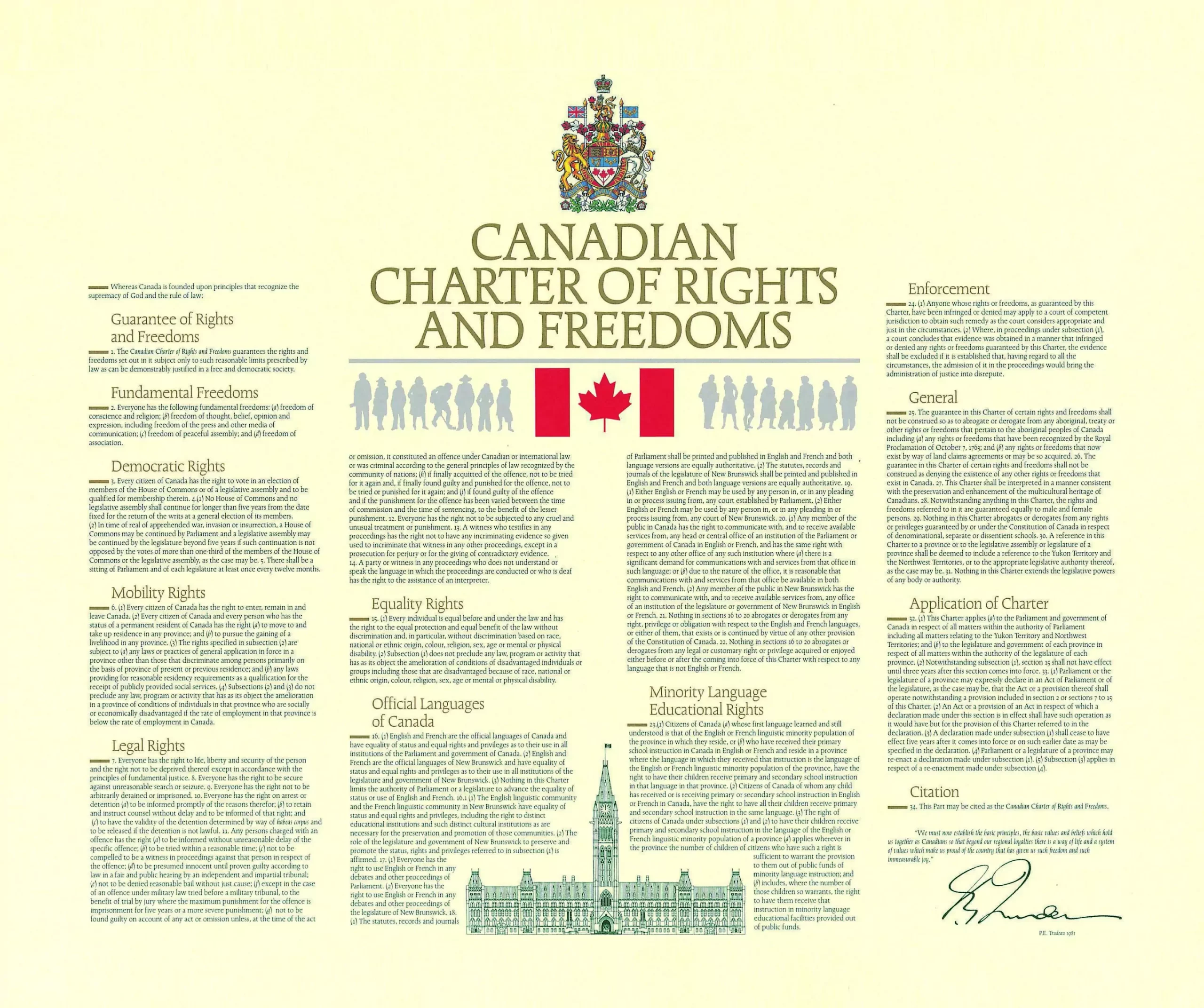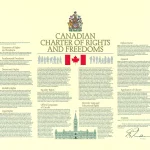Why is the Charter of Rights and Freedoms Important?
Breaking down the need for the Charter
Most people have a basic idea of what it is, but why is the Charter of Rights and Freedoms important? First, we need to break it down some, then we can dive into why it is important.
What is the Charter of Rights and Freedoms?
The Charter of Rights and Freedoms is a constitutional instrument. The Charter that lays out the basic rights and freedoms guaranteed to individuals in Canada. Although, guaranteed may be too strong a word. There are a couple of areas that really take "guaranteed" out of the equation. Let's start with those. This will be brief, for more information on the Charter, read Understanding Canada's Charter of Rights and Freedoms.
Limiting the Rights and Freedoms in the Charter
The Limitations Clause
Section 1 of the Charter, called the "Limitations Clause", allows the courts to impose reasonable limits on the rights in the Charter. There are many who would argue imposing reasonable limits on all rights and freedoms. However, the vast majority of those who believe in such reasonable limits may ignore more important issues. When imposing limits on others, be mindful that the same limits can be used against you. Take, for instance, hate speech. One could argue, and rightfully so, that there are relatively few people who use actual hate speech in public settings. One could also argue that even fewer agree with that hate speech.
As an example of how hate speech can go wrong, think about a government gets in. This government then decides that hate speech is anything aimed at the government and the governing party. It has now become too late to fight that. Once the initial law passed the test, it created a possibility for this to happen. It is important to note that this clause is only available to the courts. This allows them to decide on a law that has already passed.
The Notwithstanding Clause
Moving on, we also have section 33 of the Charter. This section is the "Notwithstanding Clause". This clause allows the government to implement laws it knows violate the Charter, and not pass the Limitations Clause. Governments have used the clause only a handful of times, and mainly in Quebec. Parliament invokes the notwithstanding clause by adding that a particular piece of legislation is operating notwithstanding the Charter. The government is saying, we don't care about your rights, we just want this law in. Thankfully, there is a five-year renewal requirement on the notwithstanding clause. This means that another government may undo that legislation.
Rights Contained in the Charter of Rights and Freedoms
Moving on, let's examine the rights in the Charter. There are many sections that to speak of, but we'll stick with a few rights shared among all Canadians. These involve sections 2, 7, and 15. Section 2 has multiple subsections, a-d, all of which address the fundamental freedoms available to all Canadians. These include freedom of conscience and religion, freedom of thought, belief, opinion, and expression, freedom of peaceful assembly, and freedom of association. Next, Section 7 includes the right to life, liberty, and security of the person. Further down, Section 15 ensures all of us are equal under the law. However, the rights don't stop there. Further into the Charter is section 26. This section creates a sort of tunnel effect for all other rights to continue.
How Does All of this Make the Charter Important?
The Charter is about individual rights and freedoms, not societal, and section 7 is explicitly about the individual. In fact, section 7 rights are so important that an infringement typically cannot stand a Section 1 test. This is because it is so individualized.
Now, imagine not having the Charter. Where would our rights be? Well, our rights and freedoms would be up to the courts and different judges deciding whether this is or isn't a right, and then deciding, because of further cases down the line, that it wasn't a right after all. Therefore, the Charter is so important, to help keep the individual rights and freedoms we need.

